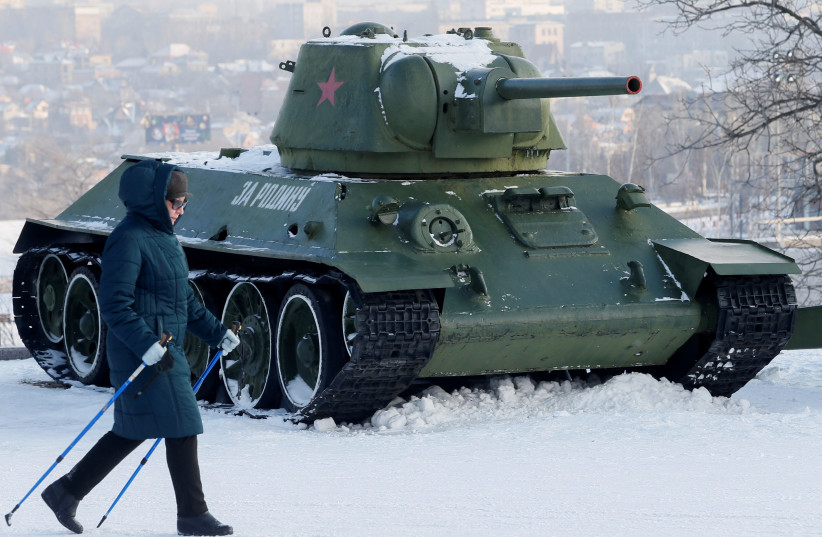The standoff between Russia and the West over Ukraine is the beginning of a variation of a second Cold War, and Israel is standing on the sidelines, according to Dr. Ofer Fridman, a senior lecturer in war studies at King’s College in London and an expert on Russian affairs.
“This is a second variation of the Cold War with three sides – Russia, China and the United States,” he told The Jerusalem Post. “The question is how bad can it go?”
“[Former prime minister] David Ben-Gurion adopted the policy of non-alliance, and it was the Soviets who chose to support the Arabs,” Fridman said. “Because Ben-Gurion did not pick a side, the USSR chose a side for him. It’s on Israel now to make a choice, or not.”
“In our regional environment, the question is, Can we stay neutral?” he asked. “Do we want to stay neutral?”
Israel understands that its strongest ally remains the United States, but Russia is the key influencer in the Middle East, and Jerusalem speaks to Moscow to continue its war-between-wars campaign against Iran and Hezbollah in Syria.

Just recently, as if to send a reminder to Jerusalem, Russian fighter jets carried out a joint patrol with the Syrian Air Force over the Syrian Golan Heights. Russia’s Foreign Ministry has also chastised the intensity of Israeli airstrikes on Syria, which it claimed have sharply increased.
“Israel benefited significantly until now from what is happening between Russia and the US,” Fridman said. “How many other senior military officers can say that they were in Russia’s MOD on a Tuesday and then the Pentagon on Wednesday?”
Israel is one of the few countries to have good relations with Ukraine, Russia and the US. It is also a major non-NATO member and has recently increased its working relationship with the alliance, holding military drills with member states and hosting visiting NATO vessels.
According to Fridman, Russia has been trying for the past 20 years to undermine NATO, which has continued to expand to the east.
“For Russians, this conflict started in 1991 when the West tore the Soviet Union apart,” he said. “To say it began in 2014 with the annexation of Crimea is a very Western perspective.”
It is unlikely that Russia will invade Ukraine, Fridman said.
Putin “first and foremost, for the past 15 years, has been trying to... undermine NATO,” he said. “The question now is, What would crumble and undermine NATO more efficiently and faster? A limited military or air operation to degrade military infrastructure or target NATO within Ukraine, or maintaining troops along the border?”
Jerusalem also tries to balance its relationship with Moscow by not selling weapons and other military equipment to former Soviet republics such as Georgia and Ukraine.
For example, in September, Kyiv expressed interest in procuring the Iron Dome missile-defense system as part of the American 2022 defense bill following a visit by President Volodymyr Zelensky.
In June, the Ukrainian city of Mariupol also said it was interested in purchasing the Iron Dome system from Israel to protect its airport.
“The Ukrainian border with Russia is not the border with Gaza,” Fridman said. “It’s 400 kilometers long. There will need to be multiple times the number of systems available to deploy along the border just to protect it, unless you decide to focus on the protection of certain infrastructure or facilities, like nuclear power plants or military deployment, not along the border.”
Even if Ukraine did want to purchase the Iron Dome and had the required funds, “it would require an unprecedented deal,” he said.
A possible second Cold War, which is playing out not only in the Middle East but across Eastern Europe and Asia, will need Israel to continue to walk a very thin tightrope if it wants to retain its military edge in the region.
If not, Israel’s freedom of operation could be at risk on its most volatile fronts.
